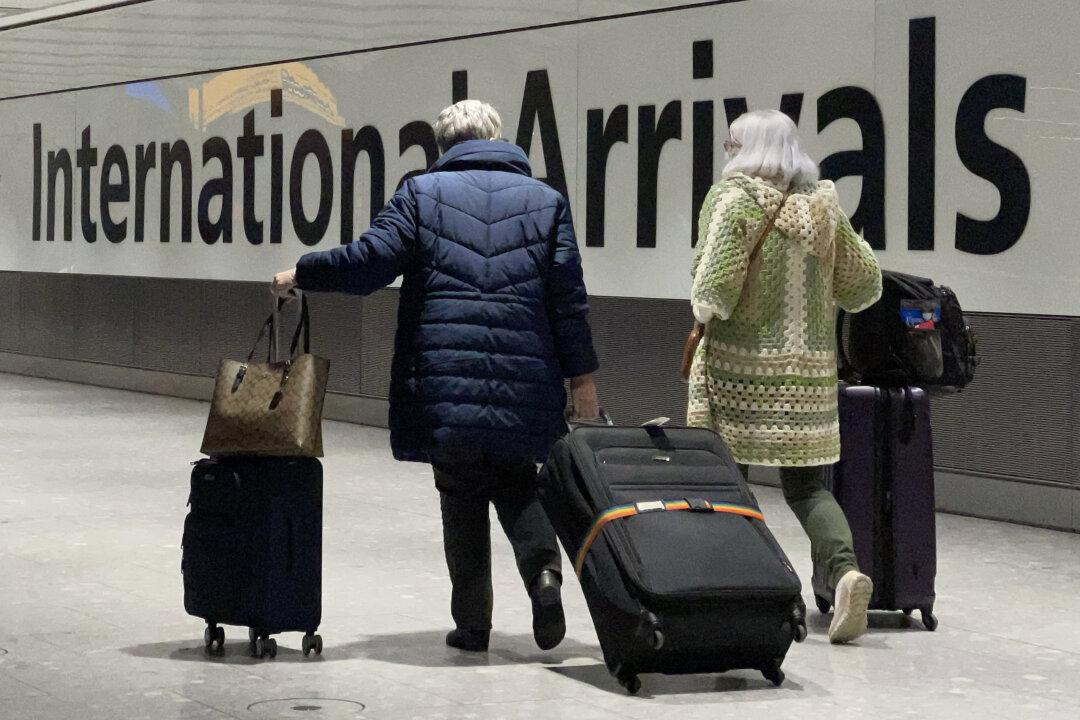Aircraft passengers are up to three times more likely to contract the Omicron variant of the coronavirus compared to the Delta variant, a top medical adviser to the world’s airlines said on Tuesday.
David Powell, physician and medical adviser to the International Air Transport Association, told Bloomberg that the relative risk of contracting the Omicron variant of the virus drastically increases for airline passengers, while recommending people get vaccinated and boosted.




